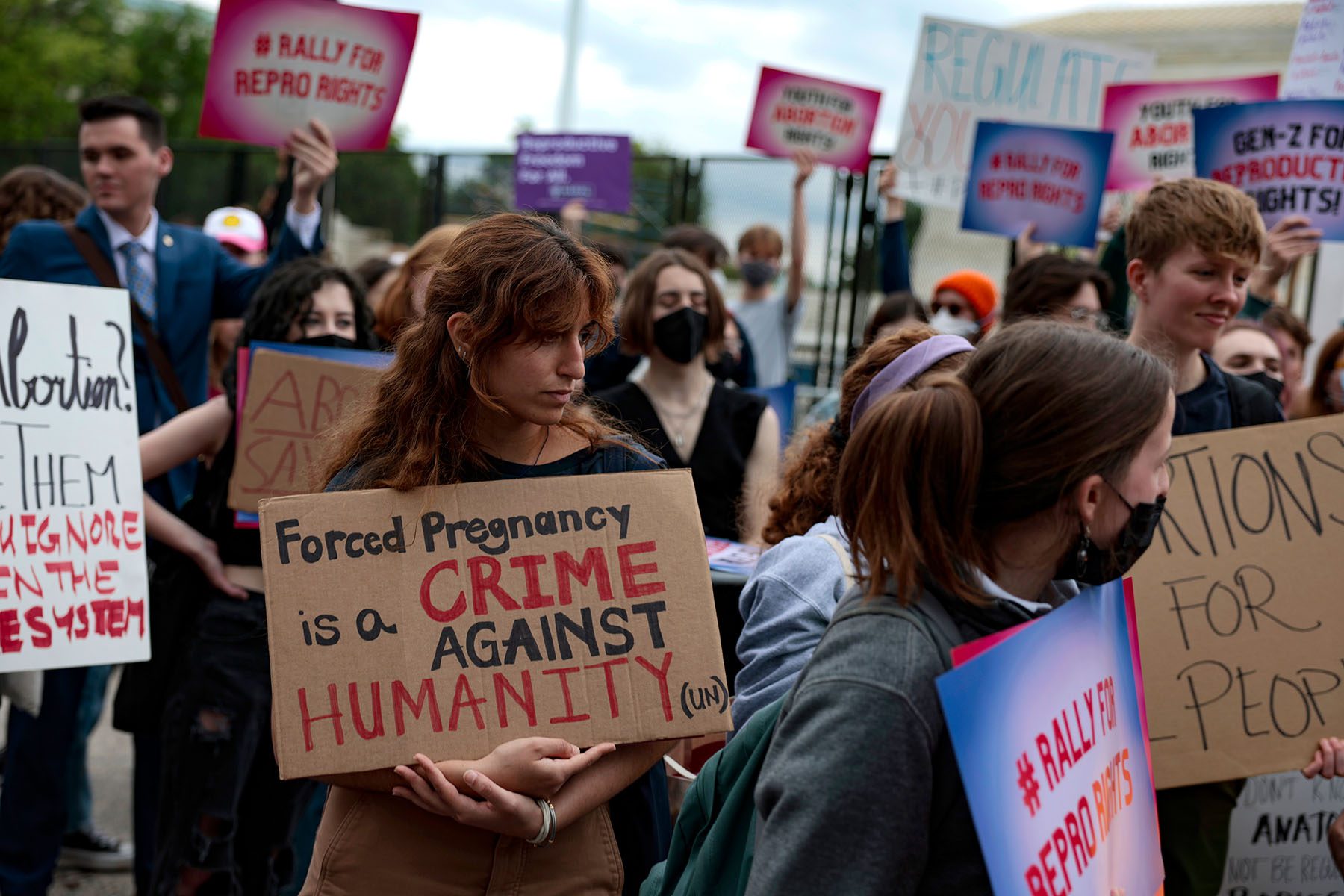The Supreme Court has overturned Roe v. Wade, the landmark case that had guaranteed the right to an abortion since 1973. States now have the right to ban or otherwise heavily restrict abortion if it is not protected by their state constitutions. In some states, the impact will be felt immediately. In others, legal questions about the future of abortion access could drag out for years.
The decision to overturn Roe, issued Friday in the case known as Dobbs v. Jackson Women’s Health Organization, had been expected since May, when a draft version of the decision was leaked to Politico.
The ruling’s impact will vary from state to state. But it will without doubt create a patchwork system where abortion is illegal in large swaths of the country. Here, The 19th explains what will happen next in states across the country.
-
The latest:
Which states have trigger laws? And how long will it take for those to go into effect?
Currently, 13 states have trigger laws, bans written to prohibit abortion that would take effect once Roe is overturned. While the mechanisms and timing of these bans vary, they are certain to soon eliminate access to legal abortion in large swaths of the country.
Trigger laws appear to take effect immediately in three states: Kentucky, Louisiana and South Dakota.
Five other states require their attorneys general to certify the Supreme Court decision before they can begin enforcement: Arkansas, Mississippi, Missouri, North Dakota and Oklahoma. For months, attorney general offices in those states had been preparing to move swiftly to enforce those bans — and the unequivocal writing in the court’s decision makes quick action all the more likely.
In Utah, an independent legislative council must do a similar certification; in Wyoming, the governor plays that role.
In three other states — Idaho, Tennessee and Texas — abortion bans will take effect in 30 days. (In Oklahoma and Texas, abortions are already not available for people who are past six weeks pregnant.) Only four of these states — Idaho, North Dakota, Mississippi and Wyoming — have exceptions in their laws for rape.

What about abortion bans that were on the books before Roe?
Michigan, Alabama, Arizona, West Virginia and Wisconsin do not have trigger laws, but they do all have abortion bans on the books that pre-date the 1973 Roe decision and were never repealed. Georgia has a pre-Roe ban that was partially struck down by the Supreme Court in 1973, in another case separate from Roe.
These laws could be newly enforced, but legal questions loom, and they are certain to be the subject of months or even years of litigation. There is little precedent for enforcing laws that have long been blocked, and experts are divided as to whether these bans can now take effect, or if they would need to be passed through state legislatures once again. Michigan’s pre-Roe ban is already facing two legal challenges, and a state judge has temporarily blocked the law from being enforced. In Arizona, Republican Gov. Doug Ducey has indicated he does not believe the state’s ban would be enforceable, but other state lawmakers have argued that it should indeed take effect.
The question marks surrounding what is legal and what is not in those states will certainly foster confusion and uncertainty for clinicians who provide abortions, as well as patients. Even in states with governors or attorneys general disinclined to enforce these bans, legal experts have noted, individual prosecutors or law enforcement officials could attempt to leverage them to criminalize people providing abortions. That means that, even if these bans are ultimately not enforced, the risk of criminal prosecution is likely to deter people from seeking or providing abortions, physicians and reproductive health advocates worry.
What about other abortion restrictions that aren’t total bans?
The arrival of the Roe decision means other states are likely to push further restrictions on abortion that would have been unconstitutional under Roe v. Wade. Georgia, Ohio and South Carolina have all passed six-week abortion bans that were blocked by federal courts; in all three states, the governors have indicated they will seek to have those bans enforced. If that occurred, Florida and North Carolina would be the only states in the southeast to allow abortion past six weeks. Florida’s 15-week ban, which has been challenged in the state court, is currently set to take effect July 1.
Most state legislatures have ended their work for the year. But attorneys and government officials in some states have been preparing to unearth old abortion restrictions that were previously blocked by courts. Now that Roe is overturned, they could reopen those cases to further restrict access.
“If you’ve already got those laws that have been passed through the legislative process, why not seek to enforce them without having to come back?” Katie Glenn, government affairs counsel for the anti-abortion lobbying group Americans United Life, told The 19th previously.

Ohio, where the legislature is still in session, was working to pass its own trigger law. And in South Carolina, the Senate has begun the process of calling back its legislature for a special session to approve new abortion bans. If the House agrees to come back into session, they could work to pass a full abortion ban this summer. In Nebraska, lawmakers have been putting pressure on their governors to call the legislatures back to pass new abortion bans. The Indiana governor has agreed to call a special session in July to address inflation, and lawmakers may add abortion bans to their agenda as well.
And in Florida, whose 15-week ban passed earlier this year, some abortion rights opponents are calling on Republican Gov. Ron DeSantis to bring the legislature back to pass new restrictions as well. Even if that does not happen this summer, Glenn said, Florida — along with Montana, Iowa and Kansas — is a likely target for abortion restrictions in the years to come.
Which states protect the right to abortion?
In 10 states, the state’s supreme court has found that its constitution guarantees the right to an abortion. Vermont is voting on a constitutional amendment later this year that would explicitly protect abortion rights. Voters in Arizona and Michigan may weigh in on similar amendments as well.
- Alaska
- Arizona
- California
- Florida
- Kansas
- Massachusetts
- Minnesota
- Montana
- New Jersey
- New Mexico
In some states, though, existing protections are tenuous. In Kansas, voters will weigh in on an amendment to the state constitutions eliminating that protection. Similar amendments are on the ballot in Kentucky and Oklahoma. Florida, where the court has shifted to the right under DeSantis, is expected to soon eliminate its own state abortion rights guarantee. Iowa’s Supreme Court recognized the right to an abortion up until this month; on June 17, it issued a new ruling eliminating that protection.
-
Read Next:
-
Read Next: Why didn’t Congress codify abortion rights?
Beyond constitutional rights, a dozen states have passed laws codifying the right to an abortion up until the fetus can live independently outside the womb.
- California
- Connecticut
- Delaware
- Hawaii
- Illinois
- Maine
- Maryland
- Massachusetts
- Nevada
- New York
- Rhode Island
- Washington
Four other states plus the District of Columbia have passed laws that protect abortion rights throughout pregnancy. (Because D.C. is not a state, some local officials are concerned that a Republican-controlled Congress could attempt to ban abortion in the capital.)
- Colorado
- New Jersey
- Oregon
- Vermont









